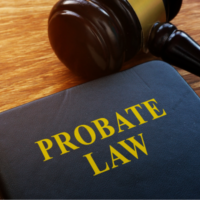Category Archives: Legal

Understanding the Duration of Ancillary Probate in Florida
If an individual who isn’t a Florida resident owns property within the state and passes away without a proper estate plan in place, an ancillary probate process in Florida becomes mandatory. This is often in addition to the primary probate proceedings in their home state. Duration of Florida’s Ancillary Probate The duration of an… Read More »

The Different Kinds of Non-Probate Assets?
Probate Estate Considerations and the Benefits of Non-Probate Assets in Florida Initiating probate for a deceased’s estate is a standard procedure in Florida, typically necessary when estates exceed $75,000, have outstanding debts, when disputes among heirs arise, or when asset profiles are complex or contain unknown elements. However, many may not recognize the potential… Read More »

Who Gets Paid First From an Estate in Florida?
Administering a Probate Estate in Florida: Duties and Order of Payment Upon death, an estate undergoes probate, where a personal representative—commonly referred to as an executor—is appointed by the court to manage the decedent’s estate, addressing all assets and liabilities. If the decedent has passed away intestate, lacking a will, the court is tasked… Read More »

Which Type of Property Is Subject to Ancillary Probate?
Ancillary Probate for Non-Resident Property Owners in Florida Ownership of property in Florida by non-residents is a common occurrence, particularly among those from colder climates seeking a warmer abode during winter months. Florida properties may include houses, condominiums, vacant land, or timeshares held solely in the non-resident’s name. Upon the death of a property… Read More »

How Long Does Ancillary Probate Take in Florida?
Guidance on Ancillary Probate for Non-Resident Decedents in Florida When individuals who are not Florida residents pass away while possessing property within the state, it necessitates the initiation of an ancillary probate proceeding in Florida. This is in conjunction to the primary probate process conducted in the decedent’s state of residence. Duration of Ancillary… Read More »

The Importance of Health Care Advance Directives in Florida for Incapacitated Individuals
Making informed decisions about our health is crucial. It’s challenging enough when we’re in a position to voice our wishes. But what happens if we’re incapacitated and cannot communicate our healthcare preferences? Worse still, what if a distant relative or an estranged spouse tries to make those decisions for us? Understanding Advance Directives in… Read More »

How to Avoid Ancillary Probate in Florida
When an individual passes away, their assets usually undergo probate in their home state. But what if that individual owned property in Florida without being a resident there? This scenario is common for those who purchase homes, condos, or other properties in Florida, either as a winter retreat or an investment. While the decedent’s… Read More »

Exploring the Distinctions Between Wills and Trusts Under Florida Legal Framework
Frequently, when working with our clients on their estate planning needs, we encounter significant misconceptions about what is truly essential. Within the realm of estate planning, two paramount documents emerge: the will and the trust. Each serves a distinct purpose but plays an indispensable role in ensuring the precise execution of your wishes regarding… Read More »

Exploring Joint Tenancy with Survivorship Rights for Florida Real Estate
In Florida, property ownership can take various forms. One notable option is Joint Tenancy with the Right of Survivorship. Joint Tenancy with the Right of Survivorship allows for seamless property transfer when one owner passes away, provided specific language on the deed adheres to Fla. Stat. 689.15. To establish this, co-owners must share four… Read More »
What is Litigation?
In US law, one party can bring a lawsuit against another party in court. In civil cases, the party bringing the suit — called the plaintiff — generally claims to have incurred loss through actions of the other party – the defendant. In criminal cases, the state — whose legal representative is called ‘the… Read More »
